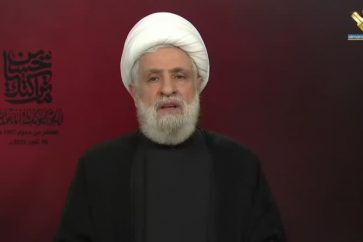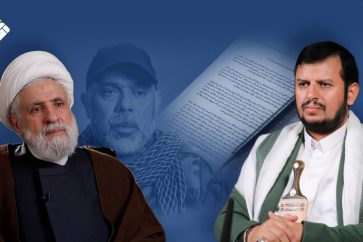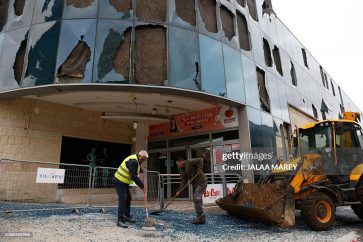Political aide of Hezbollah Secretary General Hussein Al-Khalil said on Monday that the so-called issue of “arms monopoly” in Lebanon is another form of foreign dictates, stressing that such dictates contradict with both the ministerial statement and the inauguration address.
In an interview with Al-Nour radio, Al-Khalil said that “Lebanon is being blackmailed with livelihood conditions, reconstruction, and even the funding of its army by some of the five-member committee” tasked to monitor the ceasefire between Lebanon and the Zionist entity.
He stated that “the great suffering we are experiencing in Lebanon today is that some senior officials are living under a guardianship regime in every sense of the word.”
“Successive governments have implemented the Taif Agreement since 1990 and have given the right to resistance with its army and people,” Al-Khalil said, noting that “some violate the Taif Agreement and interpret it as they wish.”
Affirming that the “Taif Agreement stipulates the necessity for the Lebanese authorities to confront the Israeli occupation and stop Israeli attacks,” he wondered: “Where the Lebanese authorities in this regard?”
“We said that the disarmament decision is a grave sin because it places Lebanon at the mercy of the winds desired by the global arrogant powers,” the senior Hezbollah official told Al-Nour radio.

He stressed that the firm stance of the resistance and its allies prevented the authorities from implementing the foreign-imposed dictates regarding the disarmament if the resistance.
In this context, Al-Khalil praised Speaker Nabih Berri over his pioneering and decisive positions, underlining importance of unity between Hezbollah and Amal Movement, known as the national duo.
Meanwhile, Al-Khalil hailed the great support of the resistance’s popular base, stressing that Hezbollah relies on “strong and solid pillar, which is the large popular base which includes families of the martyrs and the people.”
He pointed to the stance of Lebanese Army commander in this regard, describing his position as wise.
“The position of the army commander contributed to de-escalation.”
Al-Khalil affirmed, meanwhile, that there are fundamental issues that must be addressed, “most notably the cessation of Israeli attacks, the complete Israeli withdrawal from occupied Lebanese territory, reconstruction, and releasing prisoners.”
“Lebanon, given its geographic location, remains in the eye of the storm, as it borders occupied Palestine with an Israeli enemy that does not stop its attacks and its large expansionist project,” he said, calling for unity among government, political powers and people to confront the occupier.
The Israeli enemy continues to bomb Lebanon, mainly the country’s south, almost daily and maintains occupation over five posts along the southern border, in violation of a ceasefire deal reached following a brutal 66-day Israeli war between September and November 2024.
In addition to the Israeli violations, the Lebanese State has been subjected to unprecedented pressure by the United States, the first sponsor of the Zionist entity, to disarm Hezbollah.
Source: Al-Manar English Website




